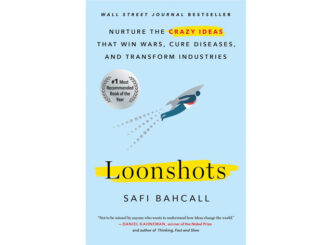The Splendid and the Vile: A Saga of Churchill, Family, and Defiance during the Blitz by Erik Larson, Penguin Random House LLC, 2020
Amazon is filled with many great business books, providing ideas on how to improve all aspects of business. I could use the advice, but I prefer to read histories and biographies that also can provide business and life lessons.
Erik Larson’s The Splendid and the Vile: A Saga of Churchill, Family, and Defiance during the Blitz, chronicles the year from May 1940 to May 1941, when London, and much of the U.K., was under The Blitz—the Nazi air war intending to demoralize the public as much as hinder munitions production. Forty-four thousand British civilians were killed. Churchill became prime minister in May and had to lead an isolated nation under attack. The book follows Churchill and his family, especially his youngest daughter Mary, who recorded her thoughts in a diary. Another key figure is Jock Colville, a young man who was one of Churchill’s personal secretaries, who, breaking the rules, also kept a diary.
What did I learn about business from this thriller?
First, there is no substitute for hard work. Colville had served under the previous prime minister, Neville Chamberlain, and was amazed at the increased work pace under Churchill, who worked late into the night. It was like running a startup! He didn’t stick to a normal schedule; he took his naps and had his bath during the day. But he often worked during his bath. He wasn’t going to lose the war to slackness.
Second, leaders need to inspire their workers. Churchill had to inspire his countrymen. They were riding out the awful nighttime bombings in shelters or at home, never knowing if they would be hit. His words and actions communicated that they would never surrender. He would climb up to the roof during bombing raids—a bit foolhardy, but he was fearless and wanted to see what was going on.
Churchill needed metrics. How many planes do we have, how many lost, how many does Germany have? No tracking system was in place, but this was crucial to determine how to win the air war, and thus one had to be created. Likewise, in business, we need to obtain metrics to measure our progress.
Churchill appointed his friend, Max Beaverbrook, to oversee aircraft production. Churchill knew Beaverbrook’s abrasive and combative nature would cause strong pushback to Beaverbrook’s changes, both within the aeronautics industry and political environment; but with Churchill’s unwavering support, Beaverbrook doubled crucial production. Lesson: set up your key lieutenants to accomplish crucial goals.
Churchill knew advancements in technology might be the key to defending the British island and winning the war. He pushed his ideas hard, including understanding that a priority was to decipher the new German radio beam navigation system that enabled nighttime targeting of bombers. Lesson: technology needs to be harnessed!
As hard and long as the work may be, Churchill truly believed that there is life outside of work. Churchill retreated to Chequers, the prime minister’s country home, on weekends. He brought his friends, colleagues, and family, so they could relate outside of regular working hours. He would play records and march around in his silly siren suit, a one-piece outfit that could be pulled on in a moment, to the delight of others, showing his complete “absence of personal vanity.”
Churchill showed empathy. He made it a point to personally visit bombed-out areas, which gave the populace great strength. He had to let them know he knew what they were going through, and that he was going through it as well.
I could go on, but you get the point—we can learn a lot from how great leaders behaved. Our task in business is not so crucial, it may not be life and death, but it is still important, to us, our staff, and our clients. Also, we don’t have to read traditional “business books” to get business insights. Consider reading well-written biographies of people who have led interesting lives in fields that can be totally unrelated to what you are doing. It will help expand ways of thinking while enjoying a good read.





Be the first to comment